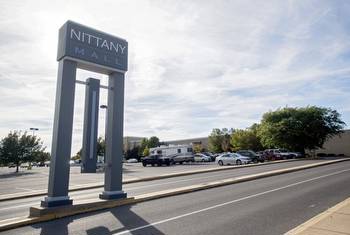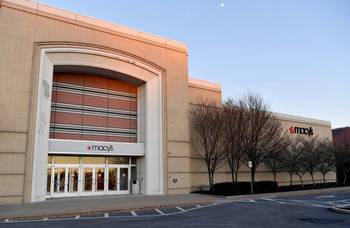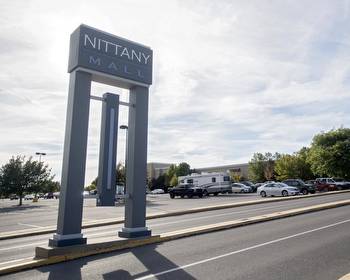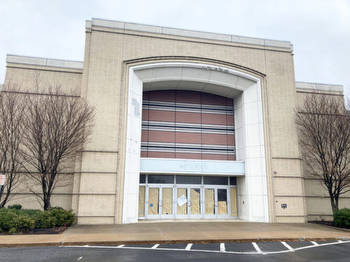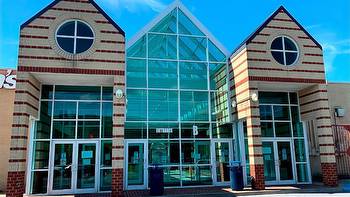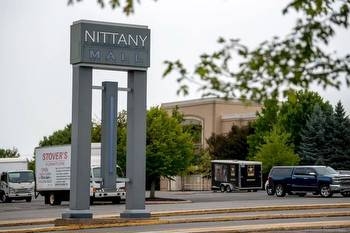New casino planned near PSU approved for license by gaming board

The Pennsylvania Gaming Control Board unanimously approved a $127.6 million casino development near Penn State University this week, granting a license to retrofit vacant space in the Nittany Mall for slot machines, table games and live entertainment.
The project is self-funded by casino industry veteran Ira Lubert, a former chairman of the Penn State Board of Trustees, operating under the entity name SC Gaming. Lubert developed and eventually sold off the Valley Forge Casino and Resort in King of Prussia.
Bally’s Corporation, a familiar name in gaming, is tabbed to operate the new venue — which will become Pennsylvania’s 18th casino.
The location is in College Township, Centre County, less than a 10-minute drive from the university’s campus and downtown State College.
Pennsylvania’s 17th casino, Parx Casino Shippensburg, had its soft opening this week with a grand opening set for Feb. 3.
At the board’s hearing Wednesday, Lubert spoke of how he began work on the Valley Forge project coming out of the 2008 economic crisis and likened it to present conditions with respect to the COVID-19 pandemic.
“I intend to use the same formula I used at Valley Forge here. I believe that the Category 4 casino I intend to construct at Nittany Mall will reinvigorate the property and draw new businesses to the property itself and the surrounding area,” Lubert said.
Initial construction is estimated at $35 million and is expected to take about 12 months once the license is formally issued. State law prevents issuance until any appeals are exhausted.
The Gaming Control Board accepted Lubert’s winning bid of $10,000,101 in September 2020 to pursue the project. A formal application was filed in January 2021. The township finalized the land development plan in December. Wednesday’s unanimous board vote, barring any appeals, brings an end to the licensing process.
The casino is planned to occupy about 94,000 square feet of space once belonging to Macy’s in the mall along Route 26. Under its Category 4 license, SC Gaming intends to offer 750 slot machines and, with an additional $2.5 million fee, 30 table games. Plans include a retail sportsbook, live music and event space, and quick-serve food and drinks.
Casino developments in Pennsylvania began when state law enacted in 2004 permitted slot machines at horse racing tracks. Table games including poker, roulette and blackjack were legalized in 2010. Online gaming was among the expansion approved in 2017. Online sports betting arrived in 2019.
Eric Pearson, an adjunct instructor at Penn State, is the casino’s prospective CEO and general manager. He served in that role under Lubert at the Valley Forge Casino, too.
During his presentation to the board, Pearson estimated the project would create 350 full-time construction jobs and 170 more indirect full-time jobs. Once the 24/7 operation is a go, he said the casino is estimated to employ 350 to 400 full-time employees.
“I started in this business bussing tables when I was 16 years old. My mother was a cocktail waitress in the casinos,” Pearson said of his time growing up in Laughlin, Nevada. “One of the things I love the most about this industry is the opportunity it provides to start at the bottom and work your way up. I’m an excellent example of that and many of my peers and colleagues in this industry are.”
Pearson projected the one-time economic impact from construction and renovations at $43.6 million in College Township. That impact expands to a projected $61.4 million when including Centre County and $73.3 million statewide when considering labor, materials and supplies, he said.
College Township’s website notes that state law dictates casinos share 4% of slot machine revenue and 2% from table games with local municipalities. The township projects Centre County and itself will receive $1,380,000 each in first-year revenue from slots and an additional $186,000 each from table games. The projected revenue for the township approaches the $1,743,278 in reserve funds its board of supervisors used to balance a budget deficit entering 2023.
The Centre Daily Times reported more than 1,500 citizens signed an online petition opposing the casino. The media outlet said potential crime, strain on public services, underage and irresponsible gaming including by university students were among the concerns. The developer says it has found there will be no substantial impact on fire, police and EMS as well as public utilities.
Ashley Gabrielle, a gaming board attorney, asked whether SC Gaming coordinated with Penn State to educate its students about responsible gaming.
Pearson, noting his connection to the university, said there were informal talks with others at Penn State but nothing formal. An attorney for the developer interjected to stress the age limit for legal gambling — age 21 and older.
Pearson said that all employees would be trained to identify potential underage gamblers and that additional training would include how to react in instances when children are left unattended on casino property.
Representatives of rival casino operator Stadium Casino, which runs Live! Casino & Hotel Philadelphia, spoke in opposition to the development during brief remarks at the hearing this week. The group separately filed a lawsuit challenging Lubert’s eligibility for a license. It’s not clear if it will also appeal the gaming board’s license approval.








